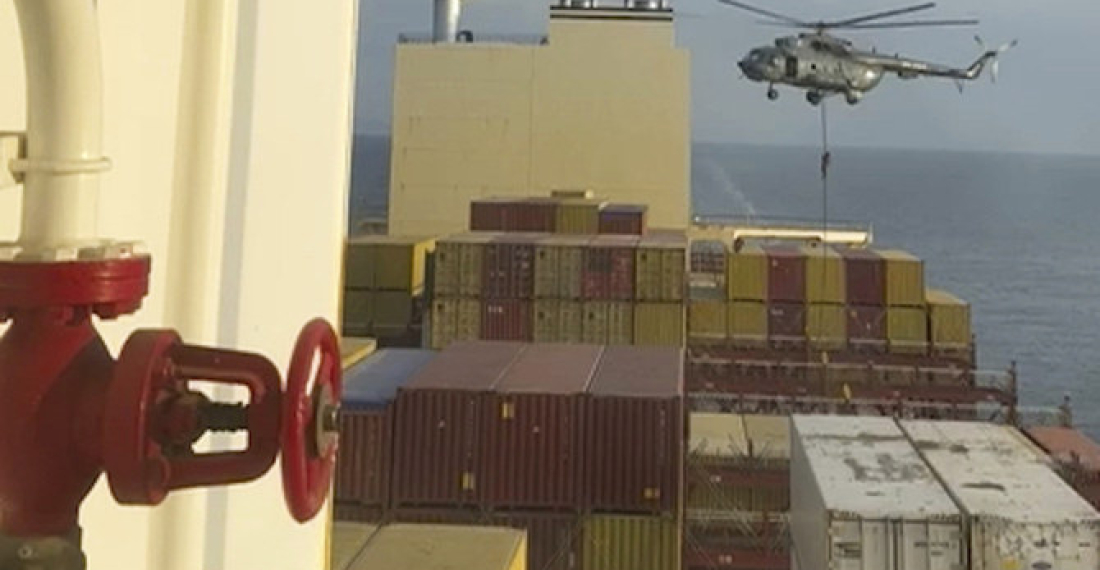Amid heightened tension in the Middle East, and an expectation of some sort of Iranian attack on Israel, it was announced on Saturday (13 April) that Iranian Revolutionary Guards naval units had seized an Israeli linked container ship in the Straits of Hormuz.
“A container ship named ‘MCS Aries’ was seized by the Sepah (Guards) Navy Special Forces by carrying out a heliborne operation,” IRNA, the Iranian state news agency reported, adding that the operation took place “near the Strait of Hormuz” and “this ship has now been directed toward the territorial waters” of Iran.
Several media sources have aired a video that shows commandos raiding a ship near the Strait of Hormuz by helicopter. The video showed the attack earlier reported by the British military’s United Kingdom Maritime Trade Operations. It described the vessel as being “seized by regional authorities” in the Gulf of Oman off the Emirati port city of Fujairah, without elaborating.
The vessel involved is likely the Portuguese-flagged MSC Aries, a container ship associated with London-based Zodiac Maritime. Zodiac Maritime is part of Israeli billionaire Eyal Ofer’s Zodiac Group. Zodiac declined to comment and referred questions to MSC, which did not immediately respond.
The MSC Aries had been last located off Dubai heading toward the Strait of Hormuz on Friday. The ship had turned off its tracking data, which has been common for Israeli-affiliated ships moving through the region. Regional media reported that 20 Filipinos were on board the ship.
The incident comes amid heightened tensions between Iran and the West, particularly after a suspected Israeli strike on the Iranian Consulate in Syria. Meanwhile, the wider Middle East remains on edge after six months of Israel’s war on Hamas in the Gaza Strip.
The Gulf of Oman is near the Strait of Hormuz, the narrow mouth of the Arabian Gulf through which a fifth of all globally traded oil passes. Fujairah, on the United Arab Emirates’ eastern coast, is a main port in the region for ships to take on new oil cargo, pick up supplies or trade out crew.







